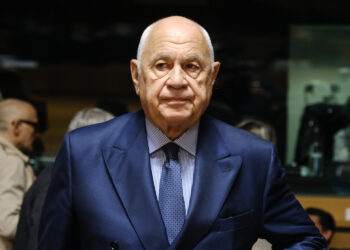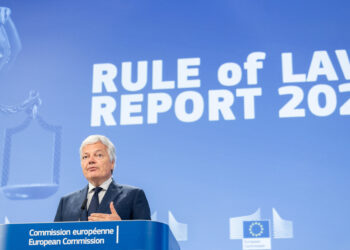Brussels – New developments in the quarrel between Giorgia Meloni and the European Commission over the state of the rule of law in Italy. A week after the publication of the annual report with which Brussels assesses the health of democratic principles in member countries, the aftermath continues: today (July 30), the EU executive confirmed that it had received the letter in which the premier complained about the instrumentality of the contents of the chapter dedicated to Italy, but clarified, “The report is the result of an established and fact-based methodology.”
This was a piqued remark, or at least due to the surprise at the unusual reaction of Rome, which wanted to reply to a report whose contents had long known and made public its missive to Ursula von der Leyen even before the European Commission could analyze it. “We are evaluating it, and at this stage, we don’t have any further elements,” European Commission spokeswoman Anitta Hipper glossed during a briefing with the international press in Brussels.
But the following note shows Brussels’ irritation: “When it comes to the rule of law report as such, it is important to say that it is a well-established, fact-based methodology and is also the result of an inclusive consultation process with member states and various stakeholders.” There is no doubt, in short, about the criticisms levelled at Italy regarding justice reform and the increasingly precarious independence of the public service. Against media reports of the concerns in Brussels over the repeal of the crime of abuse of office, the ban on the publication of wiretaps, and proposed changes to the statute of limitations, Minister of Justice Carlo Nordio had already lashed out, accusing some press organs of “misrepresentations”.

In the letter delivered Sunday afternoon (July 28) to von der Leyen, Meloni instead claimed that “the final recommendations towards Italy do not particularly differ from those of previous years,” but that “however, for the first time, the content of this document has been distorted by some for political use in an attempt to attack the Italian government.” Interviewed during a press point in Beijing, where she is visiting, the premier specified that her letter “does not open a moment of friction with the EU executive” but is “a common reflection on the instrumentalization that has been made of a technical document.” For Meloni, there is no reason to believe “that relations with the European Commission are getting worse.” The same cannot be said of relations between the Chigi Palace and much of the Italian press.
English version by the Translation Service of Withub







![Una donna controlla le informazioni sul cibo specificate sulla confezione [foto: archivio]](https://www.eunews.it/wp-content/uploads/2014/12/Etichette-alimentari.jpg)

